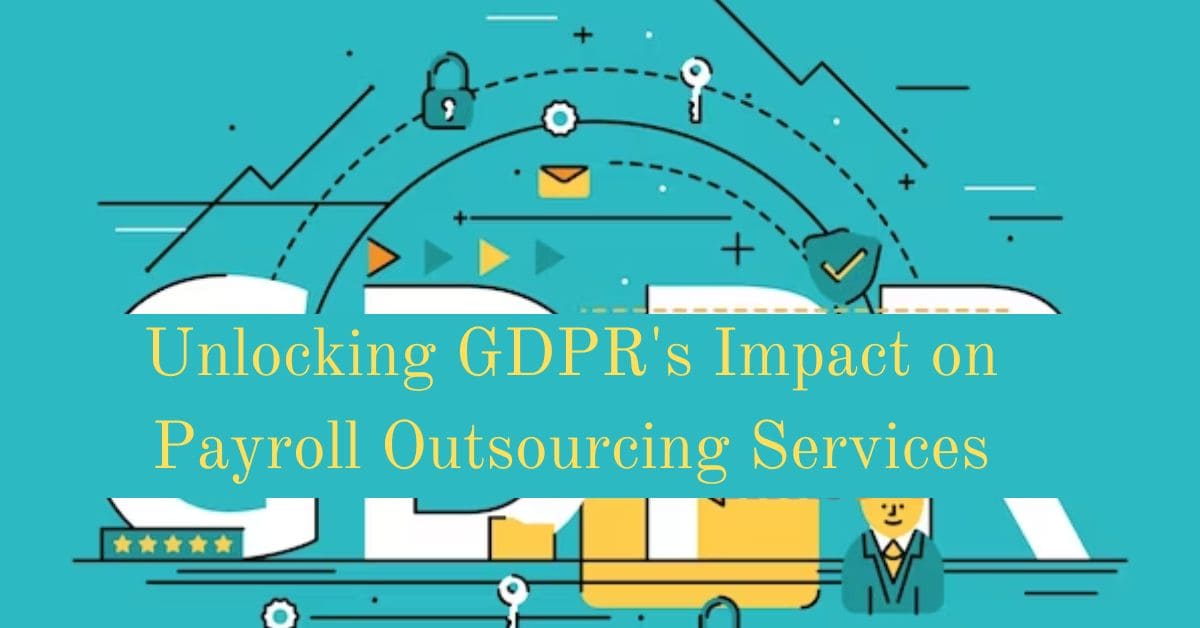In the era of increasing data sensitivity, GDPR is a pivotal framework shaping how organisations handle personal data. Its impact extends to various business functions, and payroll outsourcing companies in Mumbai are no exception. Understanding and complying with GDPR is crucial for both service providers and the businesses outsourcing these services.
GDPR Essentials in Payroll Outsourcing
-
Data Protection by Design and Default:
GDPR emphasises integrating data protection measures into the design and default settings of systems. For payroll outsourcing services, this means implementing secure processes from the outset, ensuring that data protection is embedded in every stage of payroll processing.
-
Lawful Processing of Data:
GDPR requires that individual data be processed lawfully, fairly, and transparently. Payroll outsourcing services must ensure they have a legal basis for processing employee data and that individuals are informed about the processing activities.
-
Individual Rights:
GDPR grants individuals specific rights over their data. In the context of payroll outsourcing, this includes the privilege to access their data, correct inaccuracies, and request the deletion of personal information. Service providers must establish mechanisms to address these requests promptly.
-
Data Breach Notification:
GDPR mandates the prompt notification of data breaches to both regulatory authorities and affected individuals. Payroll outsourcing companies in Chennai need robust mechanisms to detect and report breaches promptly, mitigating potential risks and ensuring compliance with GDPR obligations.
Challenges and Solutions
-
Cross-Border Data Transfers:
Payroll outsourcing often involves the transfer of personal data across borders. GDPR imposes restrictions on such transfers, requiring service providers to implement adequate safeguards. Utilising encryption, secure networks, and standard contractual clauses can address this challenge.
-
Vendor Management:
Businesses outsourcing payroll services must carefully vet their service providers. GDPR holds data controllers responsible for the actions of their processors. Thus, businesses should select providers with a strong commitment to GDPR compliance, robust security measures, and transparent data practices.
-
Continuous Training and Awareness:
GDPR compliance is an ongoing process, requiring continuous training and awareness. Payroll services in Bangalore should invest in regular training for their teams, ensuring that employees are well-versed in the latest data protection practices and regulations.
The Future Landscape
As businesses and payroll outsourcing services adapt to the GDPR landscape, the future holds an increased emphasis on privacy-enhancing technologies. From advanced encryption methods to secure multiparty computation, technological solutions will play a crucial role in ensuring GDPR compliance while maintaining the efficiency of payroll outsourcing processes.
In conclusion, GDPR’s impact on payroll outsourcing companies in India is transformative. It necessitates a paradigm shift in how organizations handle personal data, emphasizing transparency, accountability, and individual rights. By unlocking the potential for GDPR compliance, payroll outsourcing services can not only navigate the current regulatory landscape but also build trust and confidence among businesses and their employees.
